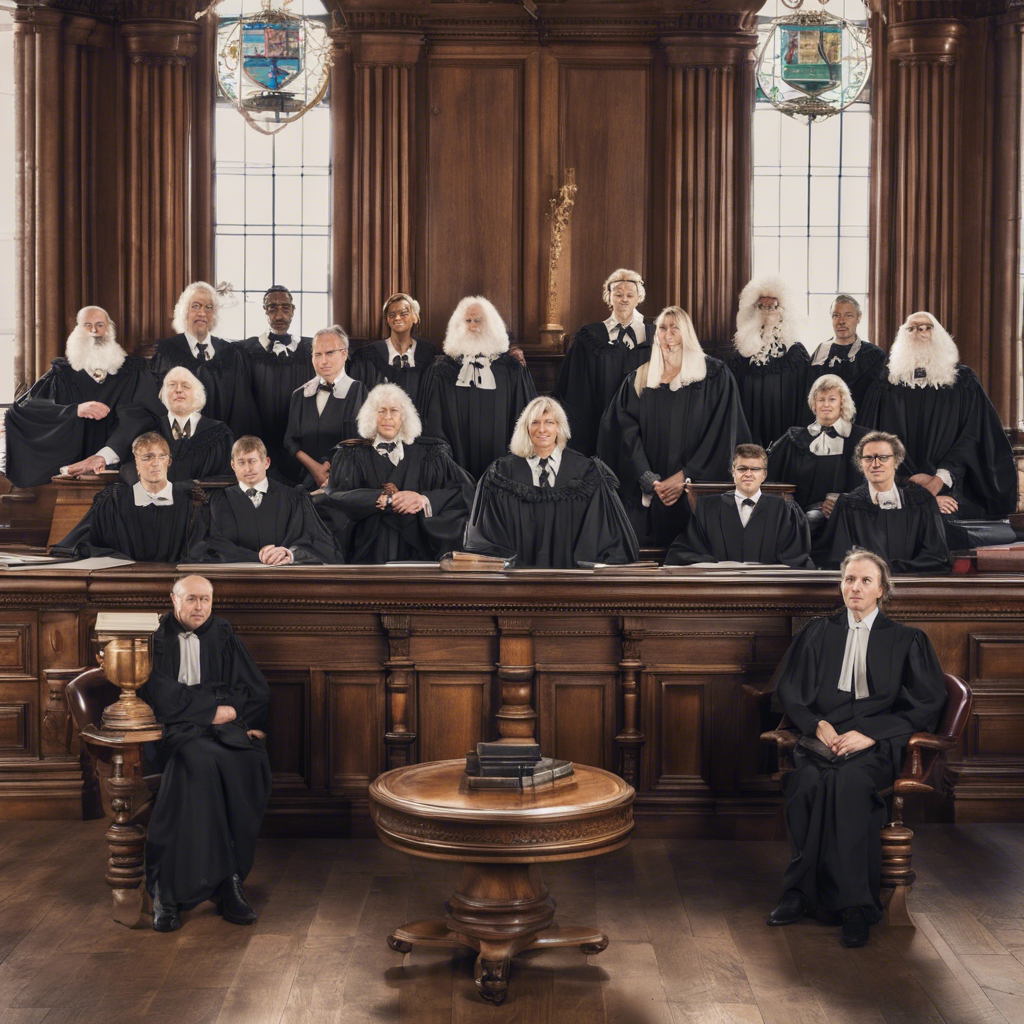Judges in England and Wales Granted Permission to Use Artificial Intelligence in Legal Opinions

The judiciary issues guidance on the use of AI, allowing judges to leverage technology in writing legal opinions while maintaining caution and responsibility.
In a significant development for the legal system in England and Wales, judges have been given the green light to utilize artificial intelligence (AI) in the production of legal opinions. This move, announced by the Courts and Tribunals Judiciary, marks a cautious step into the future for a legal system deeply rooted in tradition. While AI is not permitted for research or legal analyses due to concerns about fabricated and biased information, this decision places the courts at the forefront of grappling with the regulation of AI.
The Intersection of AI and the Judiciary
As discussions around the potential replacement of lawyers by AI and the use of technology in various legal processes gain momentum, the judiciary’s approach to AI in England and Wales remains restrained. This cautious stance is in line with the ongoing public debate surrounding the regulation of AI. Ryan Abbott, a law professor at the University of Surrey, highlights the unique concerns and cautious approach when it comes to AI in the judiciary, emphasizing the importance of keeping humans in the loop.
The Significance of the Judiciary’s Guidance
Legal experts and scholars have praised the judiciary for addressing the latest advancements in AI and providing guidance on its use. The issued guidance is expected to be widely viewed and considered by courts and jurists worldwide. While England and Wales are not the first to address AI in courts, their guidance places them among the leading jurisdictions in this area. The European Commission for the Efficiency of Justice of the Council of Europe issued an ethical charter on the use of AI in court systems five years ago, focusing on accountability and risk mitigation.
Contrasting Approaches: England and Wales vs. the United States
While England and Wales have taken a proactive step in addressing AI in the judiciary, the United States has yet to establish comprehensive guidance on AI in its federal court system. However, individual courts and judges at both the federal and local levels have set their own rules. The guidance for England and Wales stands out as one of the first published sets of AI-related guidelines in the English language, applicable broadly to judges and their staff.
Embracing Technology with Caution
The guidance issued by the judiciary reflects both acceptance and caution toward AI technology. Giulia Gentile, a lecturer at Essex Law School, highlights the need for an accountability mechanism and questions the lack of specific indications on how the guidance will be enforced. While the guidance allows judges to utilize AI as a secondary tool for tasks such as writing background material or summarizing information, it emphasizes the limitations of the technology and the importance of user awareness.
Pitfalls and Precautions
The guidance warns judges about the pitfalls associated with chatbots, citing the infamous case of New York lawyers who relied on ChatGPT to write a legal brief that included fictional cases. Judges are advised not to disclose private or confidential information to chatbots, as they have the ability to remember and retain such information. The guidance also highlights that AI systems often rely on legal material from the internet, predominantly based on U.S. law. Judges are cautioned to exercise caution when using AI for finding new information that cannot be independently verified.
AI as a Secondary Tool
Despite the limitations and precautions, AI can be a valuable secondary tool for judges with heavy caseloads. It can assist in tasks such as locating familiar material quickly or providing background information. Appeals Court Justice Colin Birss praised the usefulness of ChatGPT in helping him write a paragraph in a ruling, providing a summary of an area of law with which he was already familiar. However, AI is not yet capable of providing convincing analysis or reasoning.
Conclusion:
The approval for judges in England and Wales to use AI in writing legal opinions marks a cautious yet proactive step toward embracing technology in the legal system. The guidance issued by the judiciary reflects a balanced approach, acknowledging the potential benefits of AI while emphasizing the importance of caution, responsibility, and human oversight. As the legal profession continues to grapple with the implications of AI, this decision positions England and Wales at the forefront of the ongoing global debate on regulating AI in the judiciary.

